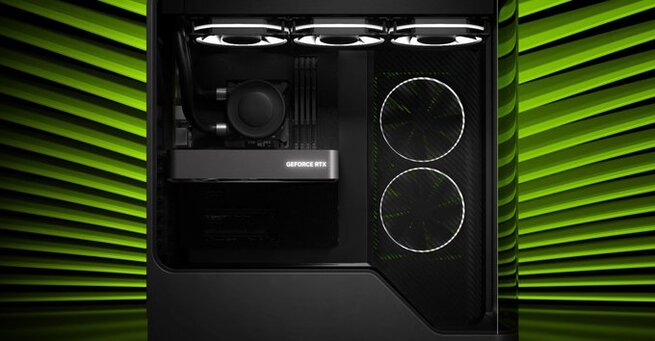
If you're searching for the truth about Nvidia’s RTX 5060 graphics card, you've come to the right place. Many PC gamers looking for the best budget GPU in 2025 are eyeing the GeForce RTX 5060, Nvidia’s latest entry in its popular 60-series lineup. But recent revelations around its launch have ignited a firestorm of controversy—raising serious concerns about GPU reviews, media transparency, and performance benchmarks. Here's everything you need to know before you spend your money on this graphics card.
Nvidia’s GeForce RTX 5060 was positioned to be its bestselling GPU of the year, thanks to its $299 price tag and the legacy of its 60-series predecessors. But behind the scenes, the launch was anything but smooth. According to leading voices in the tech review space—GamersNexus, Digital Foundry, VideoCardz, and Hardware Unboxed—Nvidia reportedly engaged in questionable tactics to control the review narrative.
These tactics allegedly included:
Releasing the GPU during Computex 2025, when most reviewers were out of the lab.
Withholding drivers until the day of launch, making proper benchmarking nearly impossible.
Selectively giving early access to handpicked reviewers—but only under strict, limiting conditions.
The stipulations? Reviews could only benchmark the RTX 5060 against older, underpowered GPUs (like the RTX 3060 and 2060 Super), at 1080p resolution, using five specific games. Reviewers were also reportedly pressured to highlight Nvidia’s MFG frame generation technology, even when it distorted real-world performance comparisons.
This isn’t just a story about a single GPU. It’s about consumer trust, media ethics, and how the gaming industry communicates with its most loyal customers. With the rising costs of PC gaming and increased interest in high-performance, low-cost GPUs, misleading benchmarks can steer gamers into buying products that don’t live up to expectations.
The RTX 5060 review controversy also calls into question the effectiveness of Nvidia's DLSS 3.5, MFG tech, and software-driven performance enhancements. These features, while impressive on paper, can misrepresent actual frame rates and gaming performance when not tested fairly.
For budget-conscious gamers, the RTX 5060 might still be a solid option—if you’re gaming at 1080p and want access to the latest ray tracing features and DLSS. However, buyers should proceed with caution. Real-world performance may differ significantly from cherry-picked benchmarks, and AMD’s upcoming RX 9060 XT looks poised to offer serious competition at a similar price point.
Before you buy, we recommend:
Watching independent reviews from trusted sources.
Looking at benchmarks that include real-world game scenarios, not cherry-picked comparisons.
Comparing the RTX 5060 to alternative GPUs like the RX 7600 XT, RTX 4060 Ti, or even older but still capable models like the RTX 3070.
The GeForce RTX 5060 review controversy should serve as a wake-up call—not just to Nvidia, but to the entire industry. In an age of rising graphics card prices, AI-powered benchmarks, and increasingly aggressive marketing, gamers deserve honest, transparent reviews more than ever.
If you're investing in a GPU, you deserve the full story—not a carefully curated narrative designed to boost sales. Let’s hope this incident leads to more ethical review practices and better transparency across the board.
𝗦𝗲𝗺𝗮𝘀𝗼𝗰𝗶𝗮𝗹 𝗶𝘀 𝘄𝗵𝗲𝗿𝗲 𝗿𝗲𝗮𝗹 𝗽𝗲𝗼𝗽𝗹𝗲 𝗰𝗼𝗻𝗻𝗲𝗰𝘁, 𝗴𝗿𝗼𝘄, 𝗮𝗻𝗱 𝗯𝗲𝗹𝗼𝗻𝗴. We’re more than just a social platform — from jobs and blogs to events and daily chats, we bring people and ideas together in one simple, meaningful space.